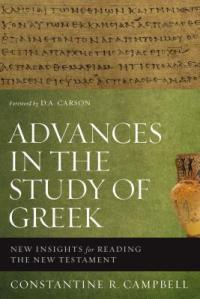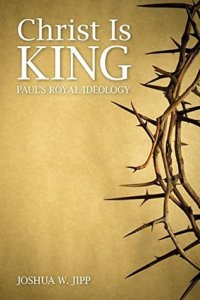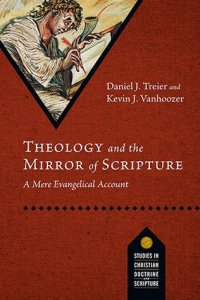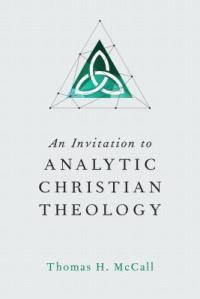I just finished my first semester at TEDS yesterday, and the final stretch was brutal. If you’re friends with me on Facebook then you probably saw my pleas for prayer and play-by-play; if you follow me on Twitter, you probably caught a few updates as well. I took 16 credit hours this semester, which wouldn’t have been too bad except for the fact that it included both Greek Exegesis I and Hebrew I. As some of my nerdy friends say, “dead languages are jealous lovers.” I had a final in every class and slept a total of 9 hours from Sunday to Thursday. Anyway, to celebrate finishing my first semester, I’d like to highlight a few books published by TEDS professors this year (2 in NT and 2 in ST). I’ve been looking forward to winter break reading for months 😀
Constantine R. Campbell. Advances in the Study of Greek: New Insights for Reading the New Testament. Grand Rapids, MI: Zondervan, 256 pp. $34.99.
 Just yesterday during a conversation with two friends at the seminary library, one of them mentioned two people I highly respect making a theological point based on the erroneous conception of the Greek aorist being automatically punctiliar. One is a doctoral student and another a professor, and neither is in the field of New Testament; but I was still surprised. My first thought was that they need to read Advances in the Study of Greek.
Just yesterday during a conversation with two friends at the seminary library, one of them mentioned two people I highly respect making a theological point based on the erroneous conception of the Greek aorist being automatically punctiliar. One is a doctoral student and another a professor, and neither is in the field of New Testament; but I was still surprised. My first thought was that they need to read Advances in the Study of Greek.
Birthed out of a course in advanced Greek that Constantine Campbell taught at Moore Theological College before he came up over, Advances in the Study of Greek provides introductions the major topics at the cutting edge of NT Greek scholarship such as verbal aspect, deponency, discourse analysis, and pronunciation. Koine Greek might be a dead language, but scholarship surrounding it has been full of life in the past few decades. Outside of specialists most are unaware of these recent significant advances, and prior to this book there wasn’t an accessible way to learn about them. Advances in the Study of Greek is essential reading for anyone who deals with the Greek New Testament, from academically oriented laypeople and pastors to seminary students and professors, because the issues addressed here have a direct bearing on how we interpret the NT. Below is a a short interview with Zondervan and an extended interview with Shaun Tabatt.
Thanks to Zondervan Academic for the review copy!
Purchase: Westminster | Amazon
Joshua W. Jipp. Christ is King: Paul’s Royal Ideology. Minneapolis, MN: Fortress Press, 2015. 208 pp. $44.00.
 Building off of and extending Matthew Novenson’s argument in Christ among the Messiahs: Christ Language in Paul and Messiah Language in Ancient Judaism that Paul’s use of Χριστός conformed to ancient Greco-Roman honorifics, Joshua Jipp’s Christ is King: Paul’s Royal Ideology argues that “Paul used, reworked, and applied ancient conceptions of the good king – both Greco-Roman and Jewish – to Christ in order to structure reality or the symbolic universe of his congregations” (9). Jipp begins in chapter 1 with a survey of ancient kingship discourse (Greek, Hellenistic, Roman, and Jewish), essential to understanding Paul’s kingship discourse, to provide the necessary backdrop for his study.
Building off of and extending Matthew Novenson’s argument in Christ among the Messiahs: Christ Language in Paul and Messiah Language in Ancient Judaism that Paul’s use of Χριστός conformed to ancient Greco-Roman honorifics, Joshua Jipp’s Christ is King: Paul’s Royal Ideology argues that “Paul used, reworked, and applied ancient conceptions of the good king – both Greco-Roman and Jewish – to Christ in order to structure reality or the symbolic universe of his congregations” (9). Jipp begins in chapter 1 with a survey of ancient kingship discourse (Greek, Hellenistic, Roman, and Jewish), essential to understanding Paul’s kingship discourse, to provide the necessary backdrop for his study.
Then a chapter each is devoted to the law, the Christ-hymns of Colossians and Philippians, participatory soteriology, and justice language in Romans, showing how kingship discourse as a source for Paul’s christological language provides the most helpful framework for understanding these passages. In the conclusion Jipp suggests that further studies examine Paul’s use of priestly metaphors and depiction of the church as temple in in light of the understanding of the king as priest and temple builder. He also relates his study to the topics of early Christology and participation. Over at the Euangelion blog Joel Wilitts has been interacting with this book and Dr. Jipp has been responding. Here is the first post and response.
Purchase: Amazon
Daniel J. Treier and Kevin J. Vanhoozer. Theology and the Mirror of Scripture: A Mere Evangelical Account. Downers Grove, IL: IVP Academic, 2015. 280 pp. $26.00.
 Theology and the Mirror of Scripture is the inaugural volume of a new IVP series entitled Studies in Christian Doctrine and Scripture. Edited by Vanhoozer and Treier, this series in evangelical systematic theology seeks “fresh understanding of Christian doctrine through creatively faithful engagement with Scripture in dialogue with catholic tradition(s).” The first volume was penned by Vanhoozer and Treier “with the hope and prayer of commending anew the evangel, and evangelical theology, to evangelicals. At their best, evangelicals have sought to hold Christ first. The present book proposes how we might do that again” (p. 10).
Theology and the Mirror of Scripture is the inaugural volume of a new IVP series entitled Studies in Christian Doctrine and Scripture. Edited by Vanhoozer and Treier, this series in evangelical systematic theology seeks “fresh understanding of Christian doctrine through creatively faithful engagement with Scripture in dialogue with catholic tradition(s).” The first volume was penned by Vanhoozer and Treier “with the hope and prayer of commending anew the evangel, and evangelical theology, to evangelicals. At their best, evangelicals have sought to hold Christ first. The present book proposes how we might do that again” (p. 10).
In contrast to the centered and bounded sets of the of the reformist and traditionalist camps, respectively, Vanhoozer and Treier propose in Theology and the Mirror of Scripture an anchored set “encompassing a Protestant ecumenical range of motion while anchored to the biblical, Trinitarian and crucicentric gospel” (21). This third way depends upon two fundamental metaphors: household (reflecting the ecclesiology of the book’s subtitle) and mirror (reflecting the aspiration of the book’s title). Vanhoozer and Treier begin in the introduction with a look at the main rooms in the evangelical household, examining their contemporary fragmentation and theological history. Then, Part One presents mere evangelical theology as an anchored set, addressing theological ontology and epistemology. Next, Part Two expounds upon the practical outworking of the agenda set out in Part One, relating prolegomena to ecclesiology. A concluding chapter expresses what the authors hope this manifesto for mere evangelical theology will accomplish in the church. Here, the authors bring out a final symbol for mere evangelical theology – the Lord’s Supper.
Thanks to IVP Academic for the review copy!
Purchase: Westminster | Amazon
Thomas H. McCall. An Invitation to Analytic Christian Theology. Downers Grove, IL: IVP Academic, 2015. 192 pp. $22.00.
 This book provides a brief and accessible introduction to the nature of analytic theology for the nonspecialist. Although “analytic theology” as a label is used in a variety of ways, a common, overarching description of the discipline is that it uses the constructive tools of analytic philosophy in the work of constructive Christian theology. In chapter 1 McCall provides a helpful overview of what analytic theology is, looking at both what makes it analytic and what makes it theology. He also addresses what analytic theology isn’t by responding to some common misunderstandings and objections, such as reliance on natural theology and substance metaphysics and lack of spiritual edification.
This book provides a brief and accessible introduction to the nature of analytic theology for the nonspecialist. Although “analytic theology” as a label is used in a variety of ways, a common, overarching description of the discipline is that it uses the constructive tools of analytic philosophy in the work of constructive Christian theology. In chapter 1 McCall provides a helpful overview of what analytic theology is, looking at both what makes it analytic and what makes it theology. He also addresses what analytic theology isn’t by responding to some common misunderstandings and objections, such as reliance on natural theology and substance metaphysics and lack of spiritual edification.
Next, McCall looks at the relationship between analytic theology and the Bible as Christian Scripture, using the case for compatibilism as a case study for how analytic theologians can bring logical coherence to a biblical theologian’s narrative coherence. Then he provides an overview of the relationship between analytic theology and historical theology and provides two case studies related to Christology to show how analytic theology informed by historical theology can help defend classical orthodoxy and correct new constructive proposals. In chapter 4 McCall addresses the need for the boundaries of analytic theology to be expanded in order to serve the church and impact the world. And finally, McCall concludes with a reminder of the proper telos of analytic theology: as theology, the proper end of analytic theology is the glorifying of God.
Thanks to IVP Academic for the review copy!
Purchase: Amazon
Vincent S Artale Jr
/ December 18, 2015Reblogged this on Talmidimblogging.
LikeLike
SLIMJIM
/ December 18, 2015Interesting to see how some can see Aorist’s function being primarily punctilar. Have that book and planned to read it next year.
LikeLike
Jennifer Guo
/ December 19, 2015Well, that’s how it was taught up until recent decades, right? there are probably a lot of people who still teach according to an incorrect/antiquated understanding of the Greek verb system….
LikeLiked by 1 person